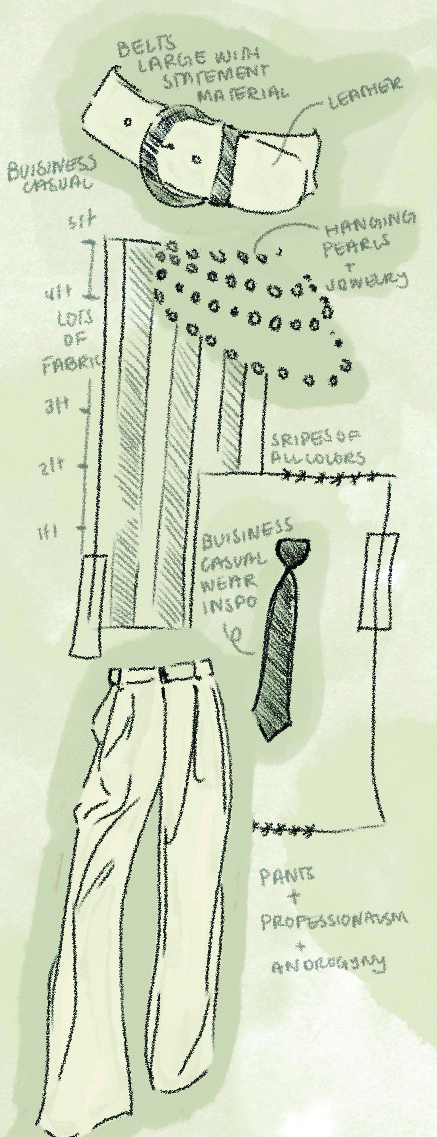By Priya ’20, Noor ’20 and Emma ’21
In 1980, about 60% of high school seniors read a book or magazine every day. By 2015 that number had dropped to just 16%, according to “iGen,” a book on the development and psychology of Generation Z, written by psychology professor Jean M. Twenge.
At Marlborough, many students have reported that they do not complete the assigned readings nor do they read for pleasure due to a lack of interest, time and reliance on study aids. In order to combat these trends, English instructors and Marlborough’s librarian have implemented measures to ensure students complete assigned readings and make time for pleasure reading.
Reading for Pleasure
Of 132 respondents to a UV survey about reading on campus, over 30% said they had not read a book in the past three months. While the survey suggests Marlborough students read more than the average American student, a lack of reading for pleasure persists.
Marlborough students also report reading less as they get older. Over 67% of survey respondents said they read less than they did in elementary school, with 92% citing schoolwork as a cause and 69% citing extracurriculars.
The age gap in reading at Marlborough is reflective of larger trends nationwide.
“Researchers have found a sharp decline in reading enjoyment after the age of eight,” books reporter for The Guardian Alison Flood writes. “62% of children between six and eight say they either love or like reading books for fun, but this percentage drops to 49% for 12-14-year olds, and 46% for 15-17-year-olds.”
An anonymous 9th grader said she enjoys reading, but still has not read anything for pleasure in several months.
“I don’t read anymore because I just can’t find the time,” she said.
Kumi ‘21 is also unable to find time in her busy schedule to read outside of school, citing extracurriculars, homework and basketball. Kumi also said her long commute to and from school consumes the time she might use to read.
English instructor Caitlin Benson said that with theheightened pressure to get into top colleges, students pack their schedules rather than devoting time to reading.
“Marlborough students in particular are so anxious about grades that they feel like their free time has to be devoted to either academic assignments or an extracurricular you could justify as ‘I’m doing this for college,’” Benson said. “Pleasure reading seems like an easy thing to move down the priority list.”
Not all students are experiencing a lack of time to read. Violet ‘24 said she finds time to read for pleasure after finishing her homework at night.
“It is difficult but not impossible to do pleasure reading during the school week,” Violet said. “I usually end up reading in bed far past the time when I should be asleep. I never read for a normal amount of time during the week—it’s ten-minute snatches or two-hour chunks.”
Laura Summers, co-founder of a publishing network website called BookMachine, said in a BBC interview that books compete with games and social media for our time.
Benson also said technology may contribute to shortened attention spans that make it difficult to concentrate on a book for long periods of time.
“Our attention spans are not what they used to be, and I think that phones and the internet and technology have a lot to do with that,” Benson said. “They bring us a lot of great things, but they also are instant gratification. And the thing about reading a book, especially a more challenging novel, is that it’s not instant gratification.”
The use of technology, especially TV, has seemed to replace reading. An anonymous senior said she started a book this past summer, but prioritized watching TV over finishing up the book.
UV survey results suggest that Benson’s hypothesis may be correct at least for some, with over a quarter of students surveyed citing a shortened attention span as the reason they are reading less than they had in elementary school. An even larger 40% of respondents attributed the decline in their reading to their phones.
“I’d rather watch Netflix,” the same student said. “I feel like I can get more done if I watch a show than if I read a few pages of a book, especially since I get bored so easily. In TV shows, there are visual cues and suspense that I just don’t seem to feel when I read a book.”
Experts agree that diminishing attention spans pose a threat to literacy in young people. In “iGen,” Twenge argues that “for a generation raised to click on the next link or scroll to the next page within seconds, books just don’t hold their attention.”
Required Reading for Class
Not only is pleasure reading declining, but required reading for classes is affected, often being skipped due to easy-to-access outside resources and busy schedules. In order to contribute in classes and earn good grades, students turn to study aids and online resources such as Shmoop and SparkNotes to get by.
Senior Rollin ’20 said she was never interested in reading a required novel until this year.
“This year, with ‘Anna Karenina,’ I am reading it because I actually like it, and I feel more pressured to get good grades,” Rollin said. “Last year and in previous years, I only read the books if I actually liked them, and I prioritize reading way less than any of my other homework. If I am overwhelmed and I feel like I can’t do one part of homework, reading is out.”
An anonymous senior said that she hardly reads the required readings and prefers to look at SparkNotes and Shmoop.
“I try to read the assigned reading, but I feel like for me it’s easier to understand the books if I don’t read them,” she said. “In class, discussions replace me having to read because it will highlight what you actually need to know for papers or assessments.”
English instructor Adam Lowenstein said in bigger classes like American Studies, he knows some students do not complete the required reading, but he says it is difficult to tell who does not read when all students actively participate. Lowenstein started giving written homework assignments to ensure students are keeping up with the assigned readings.
“If you know that I might ask you to talk to your peers about your homework, then the pressure from your peers is going to be greater than any pressure I can give from a pop quiz,” Lowenstein said.
Benson said it is a challenge to tell if students are not reading from class discussions since the English Department at Marlborough is heavily discussion-oriented at a young age. Rather, she looks towards students’ writing as a guide to whether they completed the assigned reading, but admits that this approach is not foolproof.
“If a student writes about something we haven’t really talked about in class, that often is a red flag,” Benson said. “Some of the red flags for not reading, and writing based on Shmoop or SparkNotes, are similar to the red flags for plagiarism. Parsing out the difference between ‘this person did the reading but they got someone to help them,’ versus ‘this person didn’t read but they did a good job of using study guides’ can all look very similar from my side.”
Tutors are another factor that influences students’ writing in English class. Benson said help from tutors can mask whether students actually read, so she looks towards in-class essays as a key into each student’s true writing style.
“I think in-class essays are so important because it gives me a baseline,” Benson said. “One of the things I notice when I have a take-home essay is when I see a really big disconnect between how someone writes in class and how someone writes at home, and I do notice that very often.”
Written assignments are also one of Lowenstein’s ways of assessing whether students are reading. He said close-reading is a skill that cannot be earned from reading study guides like SparkNotes, Shmoop or Cliffnotes.
“In my classes, most of the written assessments are strongly grounded in close reading,” Lowenstein said. “If you’re reading SparkNotes, you won’t be able to do that. This is the check and balance that would encourage students to read at least some of the text.”
The Role of the Library
Whether students are completing the required readings or not, the administration recognizes the importance of pleasure reading and strives to advocate for more reading inside and outside of school. Librarian Nichole Gomez is a strong advocate for reading at Marlborough. Gomez has been promoting a reading culture at Marlborough by with reading challenges to engage the student body.
Gomez works with the English faculty on the 8th Grade independent reading project where she talks about how to navigate books in the CEI while engaging students in the diverse array of reading material. “I continuously try to provide access to a diverse set of books as well as new upcoming books,” Gomez said. “I also aim at putting out themed displays throughout the year that include books that correlate with each theme, and I started these small reading challenges for each break to motivate students to read when school is out.”
Despite Gomez’s efforts, in the UV survey, 69% of respondents stated that they have never checked out a book for pleasure from the CEI.
An anonymous senior stated that the only time she has ever checked out a book from the CEI was for a project that mandated checking out a book. Yet another anonymous senior said she believes the books in the CEI serve little purpose and should be replaced with something more useful.
“They should get rid of the books from Marlborough since no one reads them,” she said. “They can use the space for beds if we need to take a power nap or for more tables because during Flex Time there is little space to do work.”
52% of respondents to the UV survey said they have never checked out a book from the CEI.
According to Gomez, there are solutions for Marlborough students to become better readers. Gomez said making this change can start with small things such as carving out time to read by listening to audio books, setting aside time on the weekends and making reading a priority.
















